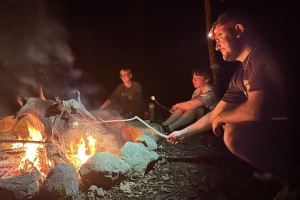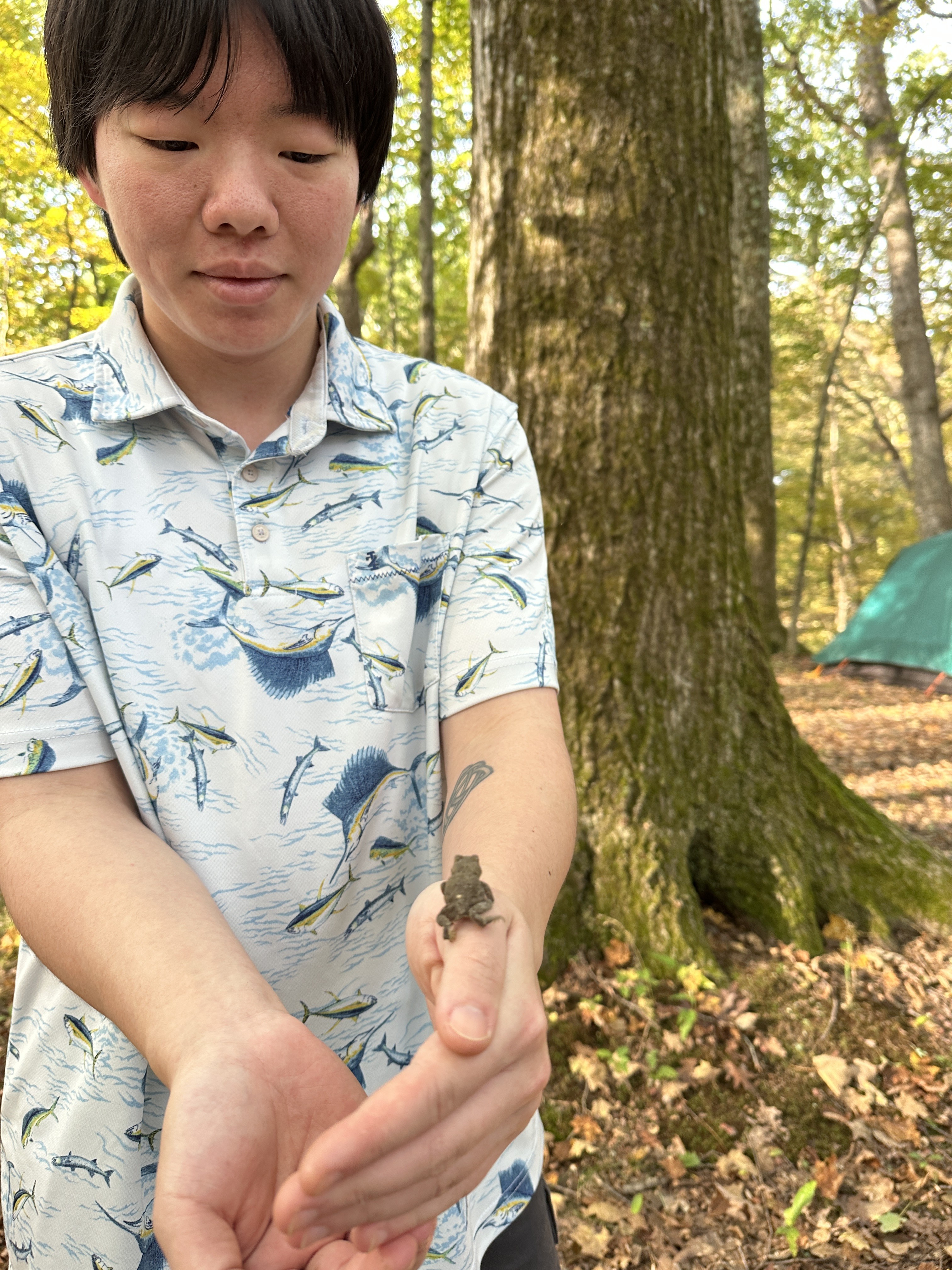
Three Mount Saint Mary College Biology students take a break and roast marshmallows around the campfire during a recent camping trip that focused on experiential learning and the natural sciences. Left to right, Aleksandra Belugin of New Windsor, N.Y.; Jae Lembo of Suffern, N.Y.; and Will Kara of White Plains, N.Y.
A trio of Biology majors from Mount Saint Mary College recently traded their textbooks for the trails during a campout focused on experiential learning.
Organized by Douglas Robinson, associate professor of Biology and Chair of the Division of Natural Sciences, the campout was held in late September at a property associated with the Claire J. Hoyt Memorial Foundation in Walden, N.Y.
The participating students – Jae Lembo of Suffern, N.Y.; Aleksandra Belugin of New Windsor, N.Y.; and Will Kara of White Plains, N.Y. – spent a weekend learning essential camping techniques, including how to set up backpacking gear and crucial wildlife precautions, like properly hanging their food away from the reach of bugs, bears, and other creatures.
The initiative fostered a deeper appreciation for the natural world while introducing students to essential field skills, Robinson explained.
“By giving opportunities like this, especially opportunities that they’ve never participated in before, it helps students appreciate that the urban humanized environment that we live in is not all that’s out there,” Robinson said. “It’s about gaining an appreciation for nature and the world around us.”
The trip incorporated hands-on biology lessons, turning the forest environment into a vibrant classroom. For example, students applied knowledge from their ecology course, identifying local species.

“We were identifying the different organisms that we came across,” Robinson explained. “So there were oaks all around us, there were different nut-producing trees, like the hickory trees, that were around us. We found an American toad, we identified a type of cricket, and a marbled slug, to name a few.”
More than just a science exercise, the campout served as a bonding experience. Conversations around the campfire were just as likely to be about life as they were to be about science, Robinson said.
“It was a great opportunity to spend time with students outside of the classroom and learn about their lives and the experiences that they’ve had,” he noted. “It helped guide me to think about what other opportunities could we provide to our students.”
The outing was part the Knight Outdoor Pursuits and Education (KOPE) Club on campus. Overseen by Robinson, KOPE provides hands-on, outdoor education that instills a sense of environmental responsibility.
Robinson is an evolutionary biologist. He has taught classes on animal behavior, ecology, ornithology, vertebrate biology, general biology, environmental science, and human anatomy and physiology.
